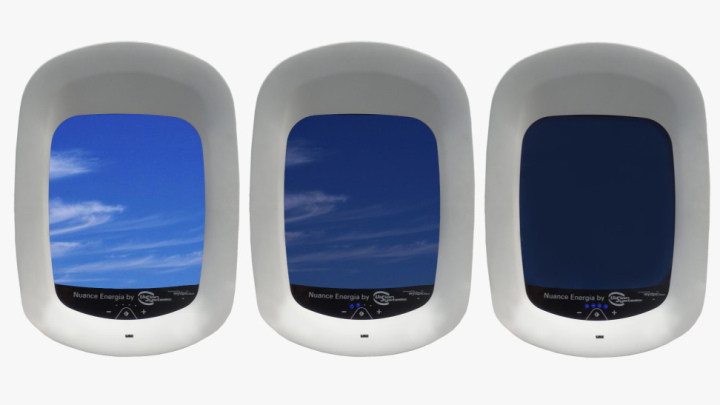
Vision Systems’ auto-tinting windows rely on nanoparticle film sandwiched between window pane layers made of polycarbonate or glass. Each time an electric current is applied to the film, the particles become active and fall out of the alignment that allows the window to be opaque when at rest. The tinted phase can block out more than 99 percent of visible light, according to Vision Systems. And a range of voltage applications gives the windows a spectrum of opacity, instead of just the open or closed options we’ve had in the past with plastic shades.
Related: Bye-bye, blinds: These windows turn opaque with the flick of a switch
This technology already exists in some new mega planes like the Boeing 787 Dreamliner, but Vision Systems is focusing on small plane and private jet models like the Epic E1000, HondaJet HA-420, and the Dassault F5X. Earlier this year, Harvard researchers developed a similar solution that is likely be used in the architecture of homes and public buildings. Vision Systems asserts that the tunable windows can reduce cabin temperature by up to 18 degrees Fahrenheit, which would save energy and therefore save airlines money.
Since we’re used to most airline improvements focusing more on profit than on customer benefits, it’s no surprise that Vision Systems’ main idea is “to enhance the value of the window seat,” meaning airlines will be able to charge more. In the future, Vision Systems hopes to release auto-tinting windows enabled with tech screens to display interactive maps, flight information, or cabin-crew communications. Much more practically, the photovoltaic dimmable windows could be introduced into airplane cockpits to help support pilots.


